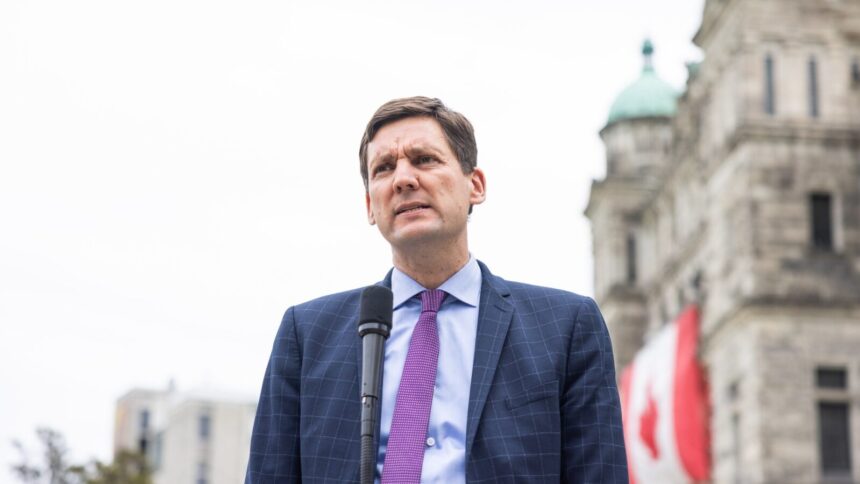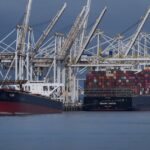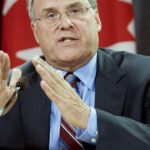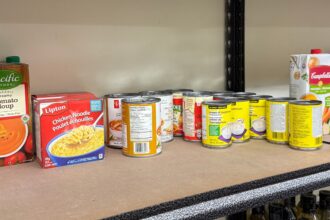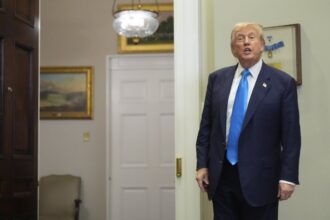British Columbia Premier David Eby has launched a diplomatic offensive against looming tariffs on Canadian goods, calling on American state governors and business leaders to push back against former President Donald Trump’s threatened 25% tax on imports from Canada.
In what analysts describe as an unprecedented move for a provincial leader, Eby has directly contacted Washington State Governor Jay Inslee and other regional U.S. officials to present a united front against what he characterizes as an economically damaging policy that would harm communities on both sides of the border.
“This isn’t just a Canadian problem—it’s an American problem too,” Eby declared during Wednesday’s media briefing in Victoria. “The integration between our economies is so profound that when you put a tariff on Canadian goods, you’re actually taxing American businesses and American consumers.”
The premier’s intervention comes at a critical juncture as Trump has pledged to implement sweeping tariffs on Canadian and Mexican imports as one of his first executive actions after taking office in January. Economic experts at the CO24 Business desk estimate such measures could trigger immediate price increases for American consumers and potentially spark a trade war that would reverberate throughout global markets.
Governor Inslee has already signaled his support for maintaining strong cross-border economic ties, noting that Washington State’s economy is deeply intertwined with British Columbia’s. “When you look at the aerospace industry, agricultural trade, and technology partnerships, imposing arbitrary tariffs makes absolutely no sense for either American businesses or workers,” Inslee stated in a joint declaration with Eby.
The economic stakes could not be higher. Canada remains America’s largest trading partner, with approximately $2.6 billion in goods and services crossing the border daily. According to Statistics Canada, bilateral trade supported nearly 9 million American jobs in 2023 alone.
Canadian officials have been quick to highlight the potential consequences of disrupting this relationship. Deputy Prime Minister Chrystia Freeland warned that Canada would be forced to respond with reciprocal measures if tariffs are implemented, creating what she described as “a lose-lose scenario for everyone involved.”
Business leaders across North America have joined the chorus of concern. The U.S. Chamber of Commerce projects that a 25% tariff could lead to price increases of 12-15% on everyday consumer goods for American households, while potentially eliminating over 500,000 jobs in import-dependent industries.
“The integrated supply chains that have developed over decades cannot be disentangled overnight without significant economic damage,” explained Dr. Melanie Thompson, an international trade expert at the University of Toronto. “When components cross the border multiple times during manufacturing, tariffs compound at each crossing, making final products dramatically more expensive.”
Eby’s strategy appears to focus on building alliances with American stakeholders who would be directly harmed by the tariffs, rather than engaging in direct confrontation with the incoming administration. This approach reflects a growing recognition within Canadian political circles that traditional diplomatic channels may be insufficient when dealing with the unpredictable nature of Trump’s trade policies.
The premier emphasized that British Columbia’s lumber, mineral resources, and manufactured goods are essential inputs for American industries ranging from construction to technology manufacturing. “These aren’t luxury items we’re talking about—they’re the basic building blocks of the American economy,” Eby noted.
As January approaches, both Canadian and American business leaders are preparing contingency plans while hoping diplomatic efforts might prevent the implementation of what many economists consider a self-defeating policy. The question now facing communities on both sides of the world’s longest undefended border is whether economic logic and regional partnerships can prevail over campaign promises that could fundamentally alter North America’s economic landscape.

